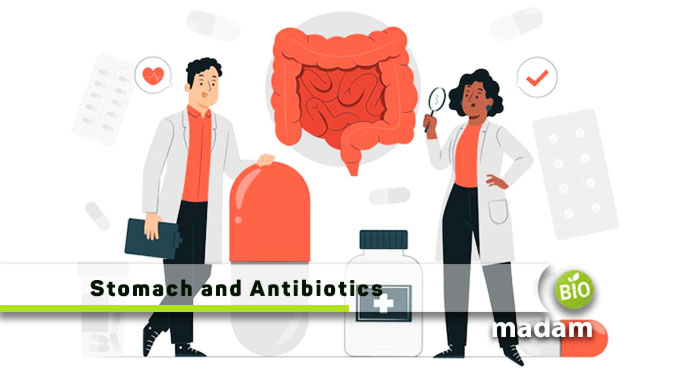Recently updated on September 9th, 2023 at 11:53 am
You are not alone if you have been told that antibiotics cause constipation. Antibiotics have always been considered a “hard” drug by the majority of people around the world. The misconception around antibiotics has led to their misuse and antibiotic resistance globally. But many of these misconceptions are just myths. One such common concern is constipation arising from antibiotics. So, do you think antibiotics cause constipation, and that is why you avoid taking them?
Before we step into further details of the effects of antibiotics on gut health, let us mention that antibiotics do cause constipation but it’s rarely observed.
What are Antibiotics?
Antibiotics split into two words: against (anti) and life (biotic), so antibiotics are medicines against life. Medicinally, drugs that stop the growth or kill bacteria are known as antibiotics. Don’t worry; they do not impact your health negatively; however, overuse of antibiotics can definitely lead to issues like constipation and diarrhea.
When certain antigens or pathogens enter your body, they lead to numerous diseases or infections which ultimately makes a space of having antibiotics for treatment. Your doctor will prescribe an antibiotic or antiviral drug if the causative agents are bacteria or viruses. Antibiotics act on a bacterial species over a particular course of time. You cannot take the same antibiotic for all kinds of antibiotic diseases. You must take your dose at the same time every day as prescribed by the doctor. However, one may still experience irregular changes in GI motility, so taking probiotics with antibiotics greatly helps! You can get these good bacteria from a variety of food supplements that ultimately increase your gut health to bear antibiotic dose
What is Constipation?
As antibiotics kill disease-causing bacteria, they disturb the gut microbiome, often leading to GI issues. Before we talk about antibiotics causing constipation, it is important to know the signs and symptoms.
Constipation refers to less frequent bowel movements and difficult-to-pass stools. It could be due to numerous reasons, including certain medications. The primary signs of constipation are:
- Passing hard, dry stools
- Inability to pass stools for three days or more
- Abdominal bloating and cramps
- Lethargy
- Decreased appetite

Do Antibiotics Cause Constipation?
As we know that antibiotic function is to kill harmful bacteria in the body, thus preventing bacterial infection. However, studies revealed that these drugs can sometimes attack the healthy gut bacteria that disturb normal GI processing, leading to constipation.
Constipation by antibiotics is generally seen in two conditions. The first, as discussed, is by changing and depleting the gut health and the second is by eliminating the key minerals necessary for the functioning of GIT. Besides constipation, antibiotics play a significant role in causing diarrhea and bloating. However, it doesn’t mean that every health problem you’re experiencing while taking antibiotics is due to this, but there could be numerous other reasons too.
Some antibiotics are seen causing gastrointestinal symptoms, e.g., amoxicillin, and its common effects include nausea, constipation, bloating, stomach pain, and vomiting. Similarly, antibiotics overuse can increase the risk of developing bacterial infections, like Clostridioides difficile infection.
Why do Antibiotics Cause Constipation?
Antibiotics may upset your stomach because they disturb the microbiome in the gut. The microbiome comprises between 200 and 500 species of microorganisms in the body. These microorganisms do not harm you. Instead, they contribute to the normal functioning of the body and protect you from bacterial infections. These microbes may also aid digestion and regulate different immunity types in the body. In short, the disturbance in the normal content of the gut leads to symptoms like constipation, diarrhea, and upset stomach.
Moreover, gut disturbances may also impact your body’s ability to absorb certain minerals like magnesium. Magnesium plays a major role in regulating gut motility. Thus, magnesium deficiency may also restrict gut movement and digestion, causing constipation. Constipation occurs in rare cases and is more common in older people than children and young adults.
Do Antibiotics Cause Constipation in Babies?
Constipation is not a readily reported side-effect of antibiotics in babies. Instead, bloating and watery stools are more commonly associated with antibiotic use in young children. However, if your child is on amoxicillin, penicillin, or doxycycline, they may experience constipation. Like adults, antibiotics lead to gut bacteria disturbance in babies as well, leading to GI issues like constipation. However, there is nothing to worry about if you or your child is facing constipation after antibiotic intake. Either its constipation caused by antibiotics or diarrhea, both will go away in 7 days. You can consult your physician if the issue remains

What to do When Antibiotics Cause Constipation?
As constipation is associated with the gut disturbance caused by antibiotics, you might not always be able to prevent it. But you can get antibiotics and constipation relief in multiple ways, such as:
- Drinking plenty of water and prune juice
- Eating food that is rich in fiber, including legumes and whole grains.
- Probiotics taken as supplements significantly help increase the healthy bacteria in the gut, ultimately easing constipation.
How to Manage Gut Health when Taking Antibiotics?
Managing gut health is critical to avoiding constipation when taking antibiotics. Some precautions that can help you maintain a healthy gut include:
- Add prebiotic supplements to your diet before starting the antibiotic course
- Take probiotic supplements when on an antibiotic course
- Obtain prebiotics and probiotics from natural sources like legumes, fruits, vegetables, seeds, and grains.
The Bottom Line
Antibiotics are widely used to treat infections caused by bacteria. However, besides killing disease-causing bacteria, antibiotics may also attack healthy gut bacteria, leading to microbiome disturbance. It influences the body’s ability to absorb certain minerals like magnesium that ensure a healthy gut system. Thus, antibiotics can cause constipation. Probiotics play a major role in maintaining gut health if you have constipation due to antibiotic use. Moreover, your doctor may prescribe you laxatives to improve your gut function and soften stools.
FAQs
What helps constipation when taking antibiotics?
Antibiotic intake may often lead to diarrhea or constipation in some cases. The best way is to increase your fiber intake and fluid intake, like apple juice to improve bowel movement if you have constipation. You may also take an oral laxative in case of serious complications.
Do antibiotics affect bowel movements?
Around twenty percent of people complain of diarrhea after taking antibiotics. Antibiotic-associated diarrhea typically goes away on its own and does not require medication. Doctors suggest staying hydrated and taking probiotics to keep your gut healthy. You may also take prebiotics to create a suitable environment for the gut bacteria to survive and grow.
How long does constipation last after antibiotics?
While constipation is not common in most children and young adults, it can take as long as six months for your gut microbiome to get back to normal. However, if you have diarrhea when taking antibiotics, it usually goes away within seven days when you stop taking antibiotics.
What medication can I take for constant constipation from painkillers and antibiotics?
Laxatives help relieve constipation by hydrating and softening stools. Over-the-counter stimulant laxatives like Bisacodyl are a common choice for antibiotic-induced constipation. Moreover, osmotic laxatives such as Magnesium citrate, Magnesium hydroxide (Milk of Magnesia), and Glycerin also help.

Meet me; I am Paulina Zaniewska, who’s more hooked on providing the best health blog. I’ve always been so determined to compete as a nutritionist, and here I am, done with a Master’s in food technology. My brilliant performance throughout encouraged me to help people.

